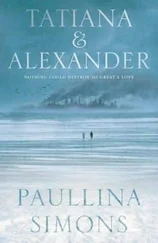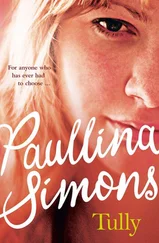Once there was a time he had a mother, her tanned, made-up, large-eyed familiar face laughing into his memory.
And when the moon was blue and the sky black and the stars beaming down their light on him, for a stitch in eternity Alexander had found what he thought was going to elude him all of his Soviet life.
Once.
Alexander Barrington was coming to an end. Well, he wasn’t going to go quietly.
He put on his three military valor medals and his medal of the Order of the Red Star for driving a tank across the barely frozen lake, he put on his cap, sat in the chair by his bed and waited.
Alexander knew how the NKVD came for people like him. They needed to cause as little commotion as possible. They came in the middle of the night, or they came in a crowded train station while you were on your way to a Crimean resort. They came in a fish market, they came through a neighbor who wanted you to come into his room for just a sec. They asked to sit next to you in the canteen where you were having your pelmeni. They hemmed and hawed their way through a store and asked you to join them in the special order department. They sat next to you on a bench in the park. They were always polite and quiet and smartly dressed. The car that would pull up to the curb to take you to the Big House and the concealed pistols they carried were nowhere in sight. One woman, who had been arrested in the middle of a crowd, started to scream loudly and climbed a lamppost and continued carrying on so that even the normally indifferent passers-by stopped and stared; she made the NKVD work impossible. They had to leave her alone, and she, instead of disappearing somewhere to the middle of the country, went home to sleep, and they came for her in the night.
For Alexander they had previously come one afternoon after school. He was with a friend, and two men came up to him and told him he had forgotten about his meeting with his history teacher, could he possibly step back in for a moment and speak to him? He knew right away, he smelled their lies on them. Not budging, he grabbed his friend’s arm and shook his head. His friend left —precipitously— knowing when he wasn’t wanted. Alexander remained alone with the two men, reviewing his options. When he saw the black car slowly pull up to the curb, he knew his options were narrowing. He wondered if they would shoot him in the back in broad daylight while there were other people around. He decided they wouldn’t and took off. They gave chase, but they were in their thirties, not seventeen. Alexander lost them in a few minutes, side-stepped into an alley, hid and made his way to a market near St. Nicholas church. After buying a bit of bread, he was afraid to go home. He thought they would go there next to look for him. Alexander spent the night outdoors.
The next morning he went to school, thinking he would be safe in the classroom. The principal himself brought a note to Alexander, saying he was needed in the office.
As soon as he left the room, he was grabbed and quietly taken outside and placed inside the car already waiting at the curb.
In the Big House he was beaten and then transferred to the Kresty prison where he awaited the resolution of his fate. He had few illusions.
But however they came for him tonight, Alexander knew they would not want to make a ruckus in the middle of a military hospital critical ward. The charade, the pretense they were using—of taking him across to Volkhov to be promoted to lieutenant colonel—would serve the apparatchiks well until they got him alone. Alexander’s goal was to make sure he did not get to Volkhov, where the facilities for his “trial” and execution were well set up. Here in Morozovo, among the inexperienced and bumbling, he had a much better chance of living.
He knew that Article 58 of the Soviet Criminal Code of 1928 didn’t even specify him as a political prisoner. If he was accused of crimes against the state, then he was a criminal, and would be sentenced accordingly. The code, in fourteen sections, defined his offences only in the most general terms. He didn’t need to be an American, he didn’t need to be a refugee from Soviet justice, he didn’t need to be a foreign provocateur. He didn’t need to be a spy or a flag waver. He didn’t even need to commit a crime. Intention was just as criminal and equally punishable. Intention to betray was as severely looked upon as betrayal itself. The Soviet government prided itself on this clear sign of superiority to the Western constitutions, which senselessly waited for the criminal act before meting out punishment.
All actual or intended action aimed at weakening either the Soviet state or the Soviet military strength was punishable by death. And not just action. Inaction, too, was counter-revolutionary.
And as for Tatiana … Alexander knew that one way or another, the Soviet Union would have shortened her life. Long ago Alexander had planned to run to America—leaving her behind, the wife of a Red Army deserter. Or Alexander was going to die at the front—leaving her widowed and alone in the Soviet Union. Or his friend Dimitri was going to point out Alexander to the NKVD, Stalin’s secret police, as indeed he had done—leaving her as Alexander Barrington’s sole survivor, the Russian wife of an American “spy” and a class enemy of the people. These were the choking choices of Alexander and the unlucky girl who became his wife.
When Mekhlis asks me who I am, am I going to salute him and say, I am Alexander Barrington and not look back?
Could he do that? Not look back?
He didn’t think he could do that.
Arriving in Moscow, 1930
Eleven-year-old Alexander felt nauseated. “What is that smell, Mom?” he asked, as the three of them entered a small, cold room. It was dark, and he couldn’t see well. When his father turned on the light, it wasn’t much better. The bulb was dim and yellow. Alexander breathed through his mouth and asked his mother again. His mother did not reply. She took off her prim hat and her coat, and then when she realized it was too cold in the room, she put her coat back on and lit a cigarette.
Alexander’s father walked around with a manly gait, touching the old dresser, the wooden table, the dusty window coverings, and said, “This is not bad. This will be great. Alexander, you have your own room, and your mother and I will stay here. Come, I’ll show you your room.”
Alexander followed him. “But the smell, Dad …”
“Don’t worry.” Harold smiled. “You know your mother will clean. Besides, it’s nothing. Just … many people living close together.” He squeezed Alexander’s hand. “It’s the smell of communism, son.”
It had been late at night when they were finally brought to their residential hotel. They had arrived in Moscow at dawn that morning after a sixteen-hour train ride from Prague. Before Prague they had traveled twenty hours by train from Paris, where they had spent two days waiting either for papers or permission or a train, Alexander wasn’t sure. He liked Paris, though. The adults were fretting, and he ignored them as much as possible. He was busy reading his favorite book, The Adventures of Tom Sawyer. Whenever he wanted to tune out the adults, he opened Tom Sawyer and felt better. Then of course, his mother afterward would try to explain what had just gone on between her and his father, and Alexander wished he had a way to tell her to follow Dad’s lead and not say anything.
He didn’t need her explanations.
Except now. Now he needed an explanation. “Dad, the smell of communism? What the hell is that?”
“Alexander!” his father exclaimed. “What did your mother teach you? Don’t talk like that. Where do you even pick up that stuff? Your mother and I don’t use that kind of language.”
Читать дальше












